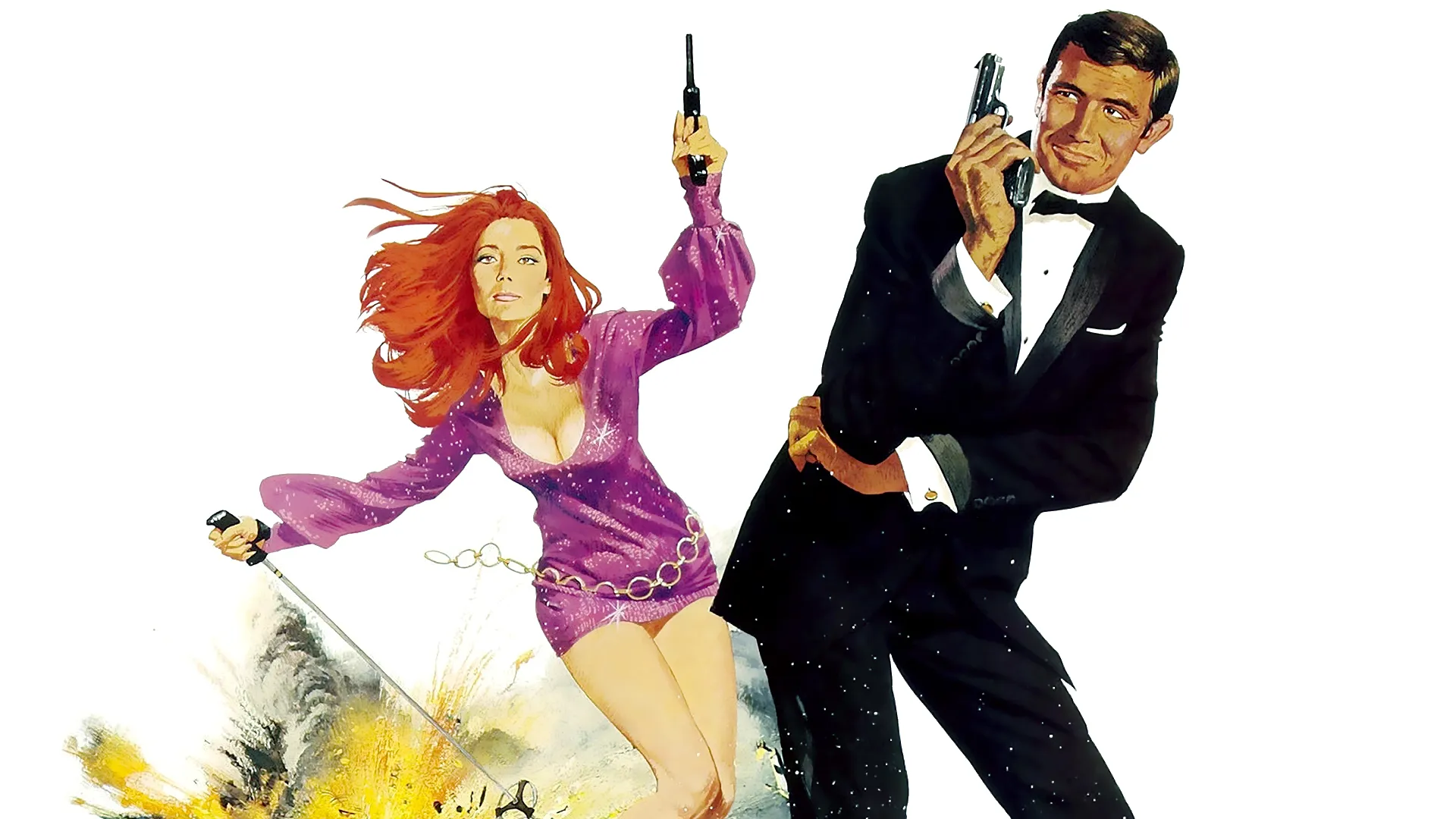George Lazenby is the best James Bond, and “On Her Majesty’s Secret Service” (1969) is the best Bond film. It’s a controversial statement, to be sure. But as long as I put fingers to keyboard, I’ll defend Lazenby’s romp as 007. This underrated and half-forgotten film stands out as a curious black sheep among a series of movies known for their campiness, rampant misogyny and ridiculousness. “On Her Majesty’s Secret Service” is anything but. It’s a stirring, realistic and ultimately tragic film about the consequences that befall a spy who forgets to separate his work from his life. When we see Lazenby’s Bond, we don’t see a superspy who has everything figured out. Instead, we see someone like ourselves: vulnerable, wounded, a person who doesn’t have everything under control.
The plot is as paper-thin as Bond films go. Once again, it’s Bond versus Ernst Stavro Blofeld (Telly Savalas), the bald-headed baddie who’s cooked up another hare-brained scheme to hold the world at ransom for untold millions. It’s a thinly veiled excuse for Bond to go skiing in the Alps and bullfighting in Mexico, where he meets Teresa “Tracy” di Vicenzo (Diana Rigg). Tracy’s a no-nonsense and fast-thinking socialite with whom Bond falls in love. And we’re not talking the flighty type of “love” where Bond beds the girl and disappears the next morning without even a Post-It on the boudoir: No, we’re talking actual love.
“On Her Majesty’s Secret Service” is the only film featuring George Lazenby as 007. It’s with Lazenby’s awkward, Australian performance where fans find the most problems. They’re put off by Lazenby’s listlessness and the slouch-shouldered way he approaches the Bond role; he doesn’t have the gravitas of his predecessor Connery. As such, Lazenby has often been dismissed as a Connery rip-off.
Yet the big question remains: What makes Lazenby such an effective Bond? It partly has to do with the quirkiness of Lazenby’s portrayal. Besides sporting mod ruffs and pink shirts that make him look like he just walked out of a Jacques Demy musical, Lazenby’s Bond is an unabashed man-child. To him, the best part of his job is mingling with the women, not fighting villainous fools or dealing with the supreme weightiness of espionage. He’s a hornier Cary Grant, a handsome pipsqueak whose immature libido is always betraying him.
At the same time, however, he’s still searching for that one person to complete him. To him, the greatest joy is settling down in a committed relationship with a woman who is his equal. He doesn’t boast the same misogyny of Connery or the fat-old-man-ish creepiness of Moore.
Lazenby’s Bond is also grounded in a relatable sense of reality that heightens our investment. Instead of appearing irritatingly infallible (“of course Sean Connery and Daniel Craig aren’t going to get hurt”), Lazenby is always on the brink of danger.
If Lazenby subverts everything we expect from James Bond, Diana Rigg as Bond woman (not girl) Tracy subverts everything we expect in a James Bond film, period. Lazenby’s Bond is nothing without Tracy. Bond and Tracy are partners-in-crime: mercurial forces-of-nature who need each other to survive.
Of course, we wouldn’t buy any of it if not for Diana Rigg’s brilliant performance, easily the most dynamic and complex woman in the entire Bond canon. Tracy is essentially the female James Bond. A brooding loner, she’s her own boss. Despite her limited screen-time, Rigg almost single-handedly absolves the series’s of its sins.
But even characters aren’t enough to catapult this into the pantheon of great Bond flicks. The film wouldn’t have the emotional weight it does without John Barry’s score. Barry, known for his bombastic life-or-death music in previous Bond outings, dials down his shtick about ten decibels to give the film a surprisingly lush romanticism. Its most beautiful theme — “We Have All the Time In the World” sung by Louis Armstrong — possesses a delicacy absent in the later, harsher Bond flicks, which pride action over amour.
But director Hunt has the last laugh, ending the film on a decidedly nihilistic note. Its finale, which I won’t spoil, is a devastating emotional blow to an otherwise flighty film of bliss. To paraphrase Michael Corleone in the equally underrated “Godfather: Part III,” just when Bond thinks he’s out, they pull him back in.
The relentless subversion of “On Her Majesty’s Secret Service” proves the exception, not the norm, of the Bond series. But perhaps it’s for the better. No other film since “Her Majesty’s” has reached the film’s heights of realism and emotional heft. Lazenby’s brief outing is not only a towering achievement for the Bond series, it’s one of the most criminally underrated films of all time.
Contact Carlos Valladares at cvall96 ‘at’ stanford.edu.
